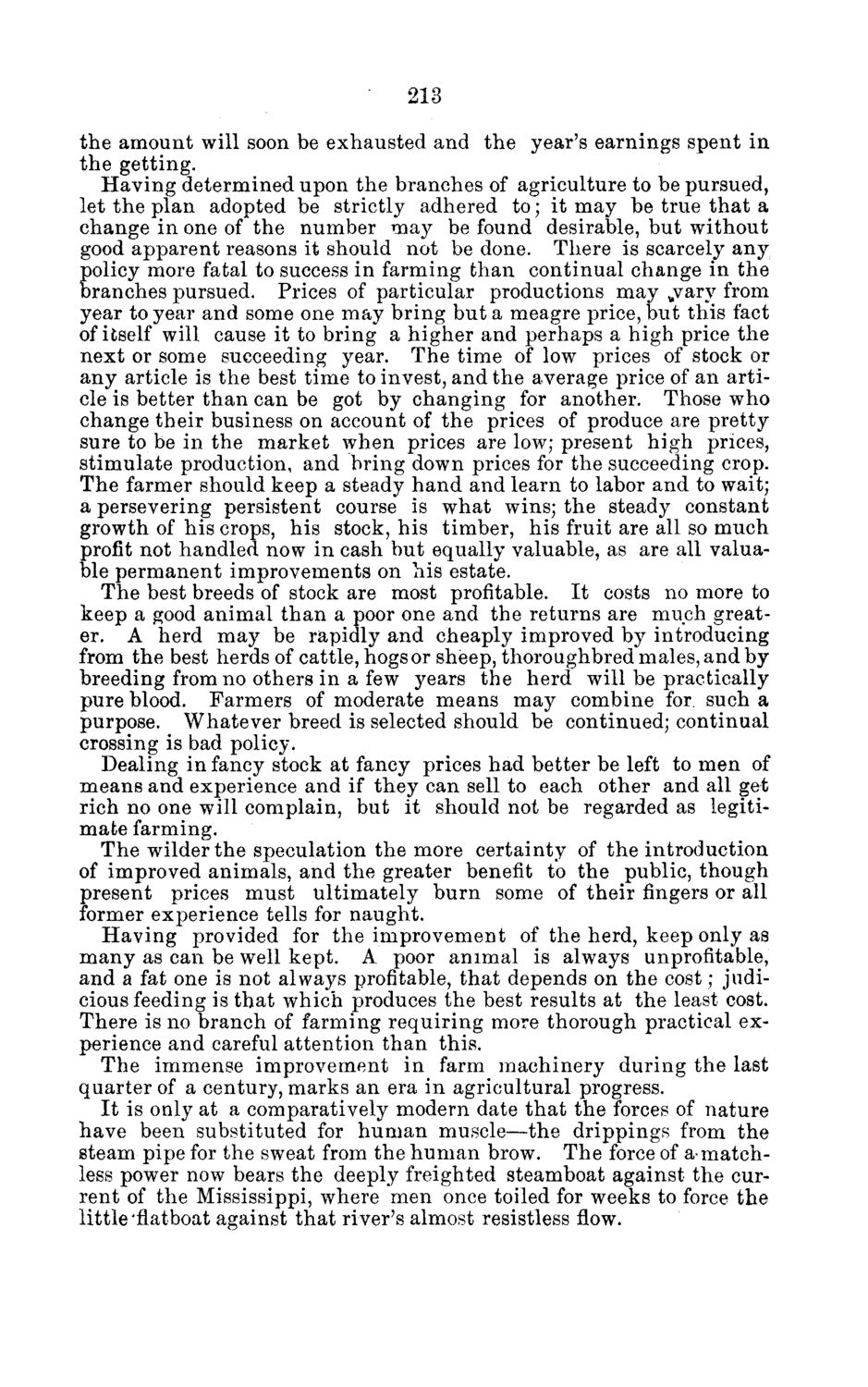| |
| |
Caption: Board of Trustees Minutes - 1876
This is a reduced-resolution page image for fast online browsing.

EXTRACTED TEXT FROM PAGE:
213 the amount will soon be exhausted and the year's earnings spent in the getting. Having determined upon the branches of agriculture to be pursued, let the plan adopted be strictly adhered to; it may be true that a change in one of the number may be found desirable, but without good apparent reasons it should not be done. There is scarcely any policy more fatal to success in farming than continual change in the branches pursued. Prices of particular productions may tevary from year to year and some one may bring but a meagre price, but this fact of itself will cause it to bring a higher and perhaps a high price the next or some succeeding year. The time of low prices of stock or any article is the best time to invest, and the average price of an article is better than can be got by changing for another. Those who change their business on account of the prices of produce are pretty sure to be in the market when prices are low; present high prices, stimulate production, and bring down prices for the succeeding crop. The farmer should keep a steady hand and learn to labor and to wait; a persevering persistent course is what wins; the steady constant growth of his crops, his stock, his timber, his fruit are all so much profit not handled now in cash but equally valuable, as are all valuable permanent improvements on his estate. The best breeds of stock are most profitable. It costs no more to keep a good animal than a poor one and the returns are much greater. A herd may be rapidly and cheaply improved by introducing from the best herds of cattle, hogs or sheep, thoroughbred males, and by breeding from no others in a few years the herd will be practically pure blood. Farmers of moderate means may combine for such a purpose. Whatever breed is selected should be continued; continual crossing is bad policy. Dealing in fancy stock at fancy prices had better be left to men of means and experience and if they can sell to each other and all get rich no one will complain, but it should not be regarded as legitimate farming. The wilder the speculation the more certainty of the introduction of improved animals, and the greater benefit to the public, though present prices must ultimately burn some of their fingers or all former experience tells for naught. Having provided for the improvement of the herd, keep only as many as can be well kept. A poor animal is always unprofitable, and a fat one is not always profitable, that depends on the cost; judicious feeding is that which produces the best results at the least cost. There is no branch of farming requiring more thorough practical experience and careful attention than this. The immense improvement in farm machinery during the last quarter of a century, marks an era in agricultural progress. It is only at a comparatively modern date that the forces of nature have been substituted for human muscle—the drippings from the steam pipe for the sweat from the human brow. The force of a*matchless power now bears the deeply freighted steamboat against the current of the Mississippi, where men once toiled for weeks to force the little'flatboat against that river's almost resistless flow.
| |